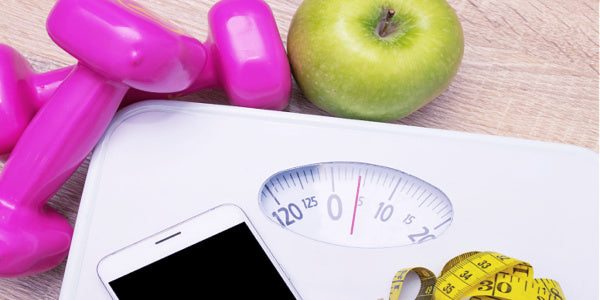
With such an extensive volume of nutrition information available right at our fingertips, it can be difficult to separate weight loss myths and facts. In fact, sometimes weight loss information seems conflicting.
Are you looking for the honest truth to debunk the top weight loss myths?
From debunking the confusion on eating less for weight loss to clarifying the truth about cutting out food groups, our experts weigh in on the truth of the top weight loss myths and facts.
11 Weight Loss Myths Debunked
Unfortunately, it can be confusing to separate truth from myth for weight loss. But these weight loss myths are clearly picked apart from BistroMD dietitians to shed light on myths and facts for weight loss.
Myth #1: You must eat always less to lose weight.
You may think, "If I restrict my daily calories and count them to a tee, weight loss is sure to follow." Though this line of thinking is logical, there is much more to the equation than such a linear approach to only cutting calories.
Because believe it or not, extreme calorie deficits and restrictions can be quite destructive and actually start working against weight loss. Very low-calorie diets can be used for medical weight loss under the guidance of a physician, but following one on your own can also cause severe side effects, including brain fog, dizziness, irritability, and worse yet, lead to muscle loss.
Losing precious muscle not only compromises overall strength, but takes a hit to a healthy metabolism, which makes weight loss even more of a challenge. Tack on heightened risks of suffering from intense cravings, weight loss becomes even more trying.
Rather than just cutting down on calorie intake, shifting the type of foods you eat can benefit weight loss plateaus and overall health. When it comes down to the truth about weight loss, eating more (not always less) whole grains, fresh fruits and vegetables, lean and plant-based proteins, and healthy fats sources is important.
Adding these whole foods to the diet naturally increases nutrient content, while encouraging you to eat less highly processed, low-nutrient foods.
Myth #2: Eating fat will make you fat.
Contrary to popular belief, eating fat does not necessarily lead to excess body fat and falling victim to myths about fat might be keeping you from your weight loss success.
Fat has a much slower digestion process, which helps to induce satiety and lower the risk of overeating, thus controlling calories and encouraging weight loss.
But this is not necessarily the go-ahead to adopt a keto diet… Instead, stray away from those "fat-free" products that are often filled with sugar and other additives to increase palatability in fats absence. Instead, enjoy an appropriate portion and serving size of a full-fat food.
Following a Mediterranean-style diet that emphasizes a high amount of monounsaturated fatty acids (MUFAs) and polyunsaturated fatty acids (PUFAs) sourced in fatty fish, avocados, nuts and seeds, and olive oil. Adopting a Mediterranean diet, even though higher in fat than other diets, is associated with many health benefits including sustained weight loss, according to a 2016 review.
Myth #3: Eating carbs will make you gain weight.
One of the most believed myths about weight loss is eating carbs causes weight gain. And if dietary fat does not exactly cause weight gain, then carbs do, right? Not necessarily!
Just like fat, there are varying types of carbs. Yes, they can be refined carbohydrates to processed foods in the form of sugar or white flour, including white bread and pasta, cookies, cake, candy, and sugar-sweetened sodas and drinks.
But carbs are also naturally sourced from whole grains, fruits, veggies, milk, legumes, nuts, and seeds. In their natural, wholesome form, carbs are excellent sources of fiber, offer fundamental vitamins and minerals, and offer many health benefits.
In fact, eating a high fiber diet that includes these natural carbohydrate foods has shown to support a healthy weight and lower the risks of diabetes, heart disease, and certain types of cancers.
That said, opt for the right types of carbs, particularly naturally-occurring carbs. Refined grains and high-sugar products offer empty calories and hold little to no nutritional value and could interfere with weight loss.
Myth #4: Cutting out food groups is essential for weight loss.
Cutting out all dairy, grains, or fruit for weight loss became popularized mostly to its celebrity following. In fact, Khloe Kardashian swears giving up dairy helped her shed weight. She claims she instantly lost weight when she gave up all dairy.
But do you really need to forego dairy or all grains to lose weight?
In short, giving up any food group to lose weight can happen, but it is not the most balanced approach. When you eliminate all foods in a food group, you are also cutting out foods that offer many important health benefits. For example, milk, yogurt, cottage cheese and other wholesome dairy products that supply protein, calcium, phosphorus, iodine, and other essential nutrients.
Instead of eliminating all foods from one food group, focus on cutting out processed foods in each food group and keeping the healthier options in.
Myth #5: You'll gain weight if you eat after 7:00 p.m.
You have heard it time and time again… If you want to lose weight, the kitchen must close at 7:00 p.m. and not open until breakfast. While this theory aligns with components of intermittent fasting, which does show to provide some impressive benefits, going into the kitchen after dark will not necessarily lead to weight gain…
Just don't go overboard! Too much snacking on junk food or desserts before bed adds on excess and unwanted calories. If you really want a bedtime snack, choose foods supportive for weight loss and better sleep, including string cheese and whole grain crackers, Greek yogurt and berries, and an egg wrapped into a wheat tortilla.
Bottom line: The truth about weight loss not solely depends on mealtime itself, but about WHAT you eat the whole day.
Myth #6: Snacking between meals will cause weight gain.
The poor reputation of snacks spurring the weight loss plateau myth mostly stems from the foods often chosen amidst a snack attack, including that bag of chips or candy bar, and the (often empty) calories they add to daily totals.
But if done with intent and moderation, snacking can actually assist in weight loss goals. Snacks balanced with protein, fiber, and healthy fat can keep hunger at bay prevent from overeating when the next meal arrives.
So, go ahead! Try healthy snacks for weight loss, including apple slices with nut butter, beef jerky, cottage cheese, turkey and pickle roll-ups, and homemade trail mix.
Myth #7: Certain exercises can target "trouble" spots.
If wanting to lose fat in a certain area, such as the belly, doing countless sit-ups or crunches likely will not… And despite what you see on commercials and in the media, spot reduction in exercise remains a myth.
To this day, there is no specific exercise pattern, nor pill or supplement for that matter, that can guarantee fat reduction in a particular region. So in order to peak the abdominal muscles, you must lose overall body fat, which is determined by personal genetics and lifestyle choices- not just doing more crunches.
Myth #8: Cardio is better for fat burning than strength training.
All too often dieters turn to cardio to torch calories and burn fat. While it is true cardio can drop the number on the scale faster, strength training can help maintain and increase muscle mass, which helps speed up metabolic rate.
So truly when it comes down to cardio versus weight lifting for weight loss, the best workout includes a combination of each. More specifically, the American Heart Association (AHA) encourages a minimum of 150 minutes of aerobic activity weekly, which can be in the form of running, brisk walking, swimming, dancing, cycling, or any other activity that elevates heart rate.
Also include weight and strength training at least twice a week and focus on the major muscle groups, including the back, chest, arms, and legs.
Myth #9: Going vegetarian or vegan is a guarantee to weight loss.
It is not too uncommon for people to turn to a vegetarian and vegan diet in hopes to shed those unwanted pounds. It is true that plant-based diets tend to be lower in calories compared to diets with animal meats. However, it is important to remember not all vegan or vegetarian foods are the healthiest option for weight loss.
Eating a vegan or vegetarian diet can still contain calorically-dense foods and may even lead to weight gain. For example, although a bag of chips may be both vegetarian and vegan-friendly, continuously indulging in such products may not be the most appropriate method to lose weight. And some vegan meat alternatives are just as or more calorically dense compared to meats.
However, you could lose weight if implementing these tips for eating healthy as a vegetarian, including by incorporating fresh fruits and veggies, whole grains, healthy fats, and plant-based proteins.
But like any sort of weight loss plan, it is important to remain mindful of high-calorie foods that are essentially absent of valuable nutrients (whether they are classified as vegan or not).
Myth #10: All "diet food" is bland and boring.
Perhaps if you resorted to chicken, rice, and broccoli each day, healthy food would be bland and boring… But eating healthy is not a trade-off for bland and boring food. It is possible to eat a healthy diet that is full of flavor and creativity.
Did you know you can support weight loss goals, eat delicious food, and cut down on meal prep with BistroMD? Each week, choose from over 150 delicious chef-prepared meals that are ready to eat in 5 minutes or less! There are delicious options to fit various dietary or health needs.
Myth #11: You must eat breakfast to lose weight.
Breakfast has always been touted as the most important meal of the day. Breakfast is claimed to rev metabolism and help with weight loss. Indeed, some studies have shown skipping breakfast is associated with weight gain.
However, it may be breakfast eaters have other healthy habits that contribute to a healthy body weight and eating breakfast itself does not have a bearing on weight loss. In fact, a 2014 study concluded breakfast did not have a significant impact on weight loss efforts.
What is important, whatever time of day, is to choose a variety of healthy foods and avoid eating beyond feeling full.
Weight Loss Myths Recap
Conflicting guidance for weight loss, whether online or learned over the years, makes it confusing to decipher what is a myth and what is the truth to help with weight loss. Regardless of what has been said, it is rarely one single thing that makes or breaks weight loss.
Instead of focusing on cutting out a food group, calories to an extreme, meat, or sacrificing all flavor and taste, shift focus on the quality of foods with a healthy quantity. Likewise, a variety of exercise - not spot reducing or only cardio - pays off many benefits for maintaining muscle throughout the weight loss journey.
References:
Dhurandhar EJ, Dawson J, Alcorn A, Larsen LH, Thomas EA, Cardel M, Bourland AC, Astrup A, St-Onge MP, Hill JO, Apovian CM, Shikany JM, Allison DB. The effectiveness of breakfast recommendations on weight loss: a randomized controlled trial. Am J Clin Nutr. 2014 Aug;100(2):507-13. doi: 10.3945/ajcn.114.089573. Epub 2014 Jun 4. PMID: 24898236; PMCID: PMC4095657.
Mancini JG, Filion KB, Atallah R, Eisenberg MJ. Systematic review of the Mediterranean diet for long-term weight loss. The American Journal of Medicine. Published December 22, 2015. https://www.sciencedirect.com/science/article/abs/pii/S0002934315300279.





